Chants and drums for Palestine rang through Uptown New Orleans for more than 30 hours from a pro-Palestine encampment at Tulane University – until they suddenly stopped.
Loyola and Tulane students banded together for the Popular University for Gaza movement with other college students around the United States in protest of tuition dollars being used to fund Israel. The encampment lasted from 6 p.m. on Monday, April 29 until police and SWAT broke it up and arrested 14 people around 3 a.m. on Wednesday, May 1.
The encampment was a joint effort between Tulane and Loyola’s chapters of Students for a Democratic Society.
Police Sweep
At 3:08 a.m., a police car with a large light attached to the hood pulled in front of the protest. Police then began to surround the encampment. SWAT then entered from the west side of the lawn.
Protesters continued to chant for Palestine as 11 people remained sitting in front of the barrier they had built on Gibson lawn.
SWAT made their way through the medical and food supply areas before they began arresting protesters still on the lawn. Loyola students and SDS leaders Carson Cruse and Juleea Berthelot were among the 11 arrested on Tulane’s property.
Protesters said they were instructed by police to move to the neutral ground to protest to avoid arrest. Two of the protesters who moved to the neutral ground were arrested, one of which was pushed to the ground by police after he stood his ground against the police advance.
Stella Cziment, the Independent Police Monitor for the city of New Orleans, said that even though the neutral ground is public property, they were permitted to arrest protesters for trespassing since they saw them leave Tulane’s campus.
One Loyola student, who was not involved with the protest, was arrested by SWAT while walking on the Audubon side of St. Charles Avenue.
While in the neutral ground, SWAT and police pushed and aimed guns at protesters, as well as fired non-lethal rounds towards the ground at the crowds’ feet.
All arrested protesters were released midday Wednesday with no bail and no bond. They have court on Monday, May 6.
Police destroyed around $1,000 worth of medical supplies including needles, drug test kits, and first aid, according to protest organizers.
A student who left their phone on Tulane’s property said it was held by theTulane University Police Department.
After the area was cleared, police swarmed Gibson Lawn and put fences around the area with signs warning of trespassing, including the large sign they pushed into the lawn on Tuesday.
Aftermath
Loyola and Tulane students organized the encampment to demand action from their universities.
Loyola SDS demanded Loyola University:
- ensure support for affected students
- release a public statement acknowledging the pro-Palestine movement
- increase funding for the new director of multicultural affairs to advocate for minority students
- divest from Israeli corporations, corporations that support Israel
- disclose the annual investments of its endowment
Tulane SDS demanded Tulane University:
- divest from Israel corporations
- disclose the annual investments of endowment
- cut ties with Israeli universities, including canceling birthright trips
- urge a cease-fire resolution by the city council of New Orleans
- offer support to Arab and Palestinian students
“The hope, obviously, is that if they meet our demands, we can come back, and we can go back to business as usual.” Tulane senior Vonne Crandell told reporters at the encampment. “But right now, they’re supporting a genocide.”
Neither university met their demands, according to protest organizers.
Tulane released a letter to the community early Wednesday morning announcing their suspension of seven students who were at the protest.
Tulane’s Office of Student Council is taking “immediate disciplinary action” toward students discovered to be involved in the encampment.
Organizers of the encampment said they worry counter protesters, who also were standing on Gibson Lawn at points, would not receive disciplinary action.
Tulane University has also disbanded Tulane SDS.
In a message to the community on Tuesday, April 30, Tulane said they are looking into employees and faculty involved, up to and including termination.
“Free speech and the freedom to protest are sacred to us,” the letter said. “However, we remain opposed to trespassing, hate speech, antisemitism and bias against religious or ethnic groups.”
Crandell said he has witnessed and been a victim of hate speech and bias on Tulane’s campus prior to the event. He said this harassment influenced him and others to plan this event.
“Many students have been facing discrimination and harassment, especially by our own peers,” Crandell said.
Tulane said they will have increased security on campus for the remainder of the semester.
Although Loyola University Police Department was not involved in the sweep, the five Loyola students arrested on trespassing charges are likely facing disciplinary issues with the university.
“I want to make it unequivocally clear that Loyola stands behind free speech and the principles of civil discourse,” university president Xavier Cole wrote in an email to the community. “While all citizens – including our students – have the right to peacefully protest, they do not have the right to do so on private property after being directed to leave.”
Neither university responded to calls from The Maroon in time for publication issued Wednesday.
What happened at the encampment?
The organizations, supportive students, and community members met on Freret street at 5 p.m. on Monday, April 29 after a post on the organizations’ social media. After going over rules and regulations, the crowd marched down Calhoun Street and St. Charles Avenue with police until they reached the Gibson Lawn on Tulane’s property.
Once they reached Tulane’s campus, organizers began to unpack and pitch tents. Before the event, only select individuals knew this would be an encampment. This was when police began to interfere. Police on horses steered into the crowd.
“It was terrifying. I was terrified as the cops were going at it,” Crandell described later that day. “Fearing for other people’s lives — like this is new.”
Still, protesters pitched tents and formed a human barrier around the camp. Police moved to the Tulane Horseshoe on the outer part of the lawn.
Six protesters were arrested Monday night. All six were released later that same night without bail and bond.
Students kept protesting after the initial arrests. Community members continued bringing food, water, medical supplies, and items to use for a barricade throughout the encampment.
“Seeing this community here willing to stand and defend us and the encampment, the Popular University [for] Gaza, the People’s University, it speaks volumes,” Berthelot said.
Throughout the encampment, a smaller counter-protest for Israel began to form.
Encampment organizers said some of these counter-protesters entered the crowd around the encampment, then called police claiming they were being surrounded and felt unsafe. Pro-Palestine protesters chanted to one another, “Do not engage.”
Police entered to break this up. Protesters said some police went to the neutral ground of St. Charles Avenue, where the counter-protesters stood, and were laughing with those students.
Over the 33 hours of the encampment, the counter-protesters left and returned multiple times.
Police occupied the sixth and seventh floor of the West Road Garage on Loyola’s campus and flew drones over the encampment on the second day.
Police arranged a barricade around Tulane’s campus on Tuesday. They then rolled in a large screen reading, “Everyone must leave this area, immediately. Entry and continued presence are strictly prohibited.”
During an afternoon prayer, a student’s Palestinian flag touched the barricade near where police were standing. One officer grabbed the flag and refused to give it back, stating that once items touch the barricade, they become police property.
Later in the day, police began to play the instrumental piece “Happy Vibes” on a loop at a volume over 120 decibels. This would continue until almost midnight, passing the 9 p.m. city ordinance that restricts noises over conversation levels of 60 decibels.
The police did not stop the music for the sunset prayer after being asked by organizers.
Protesters continued to chant, sing, play instruments, and dance in solidarity with Palestine.
Police also shined flood lights on the area on Monday night, which protestors said kept them awake.


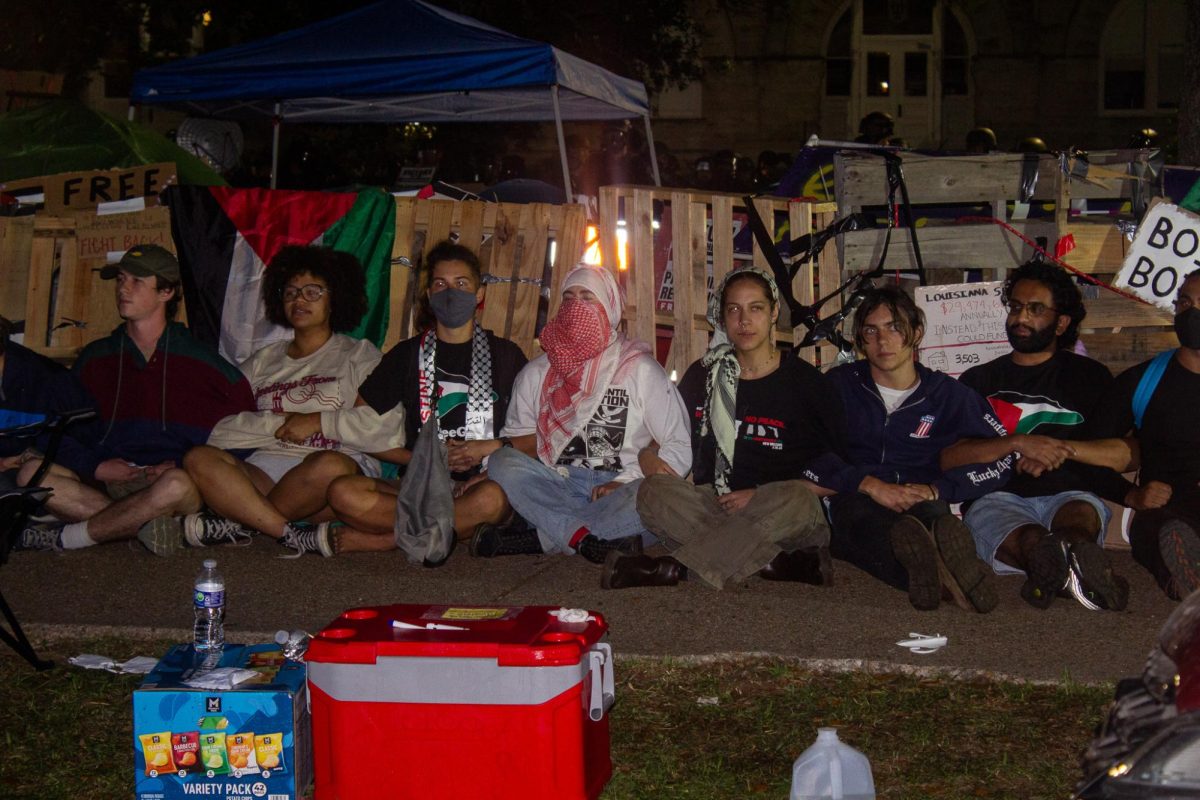
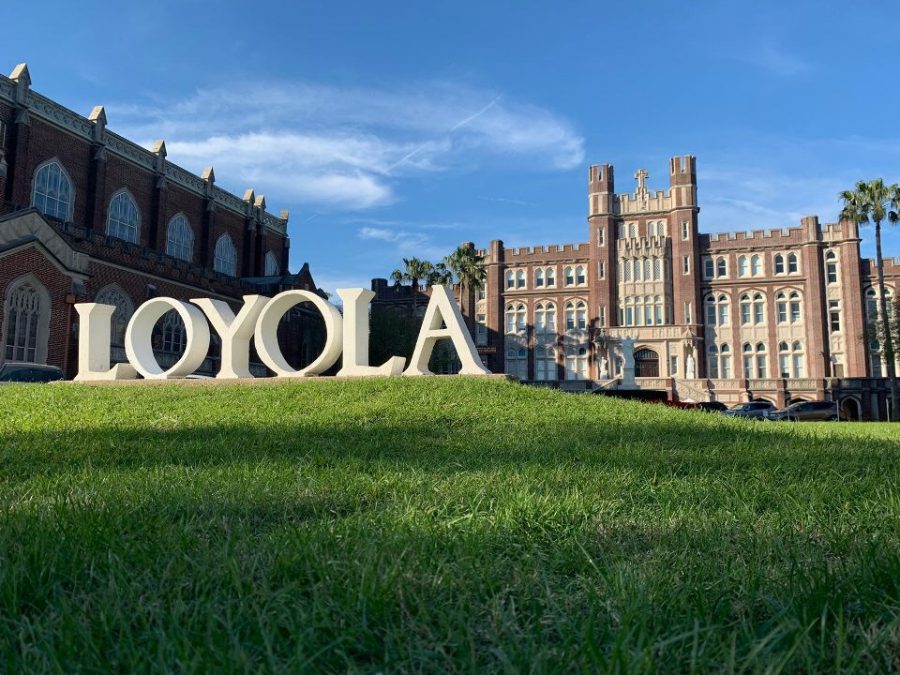

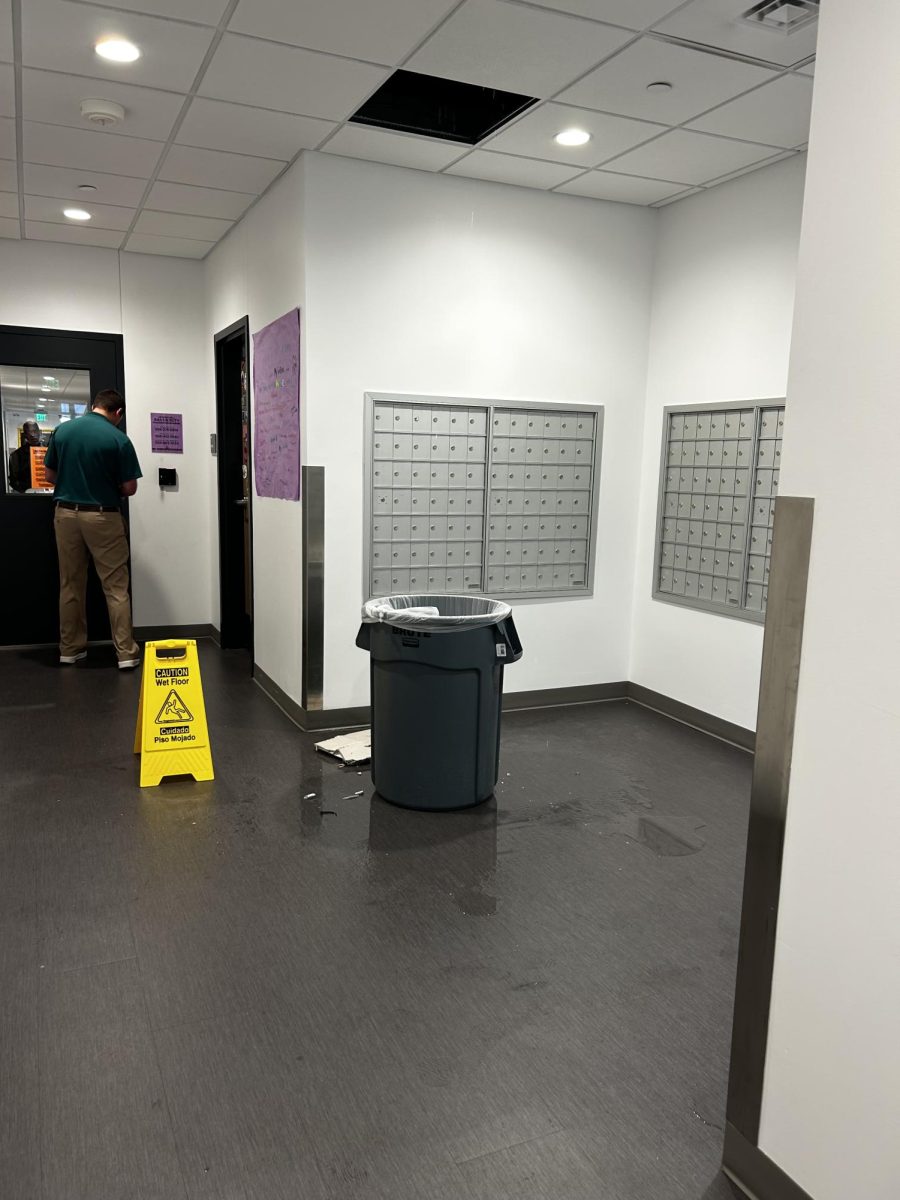
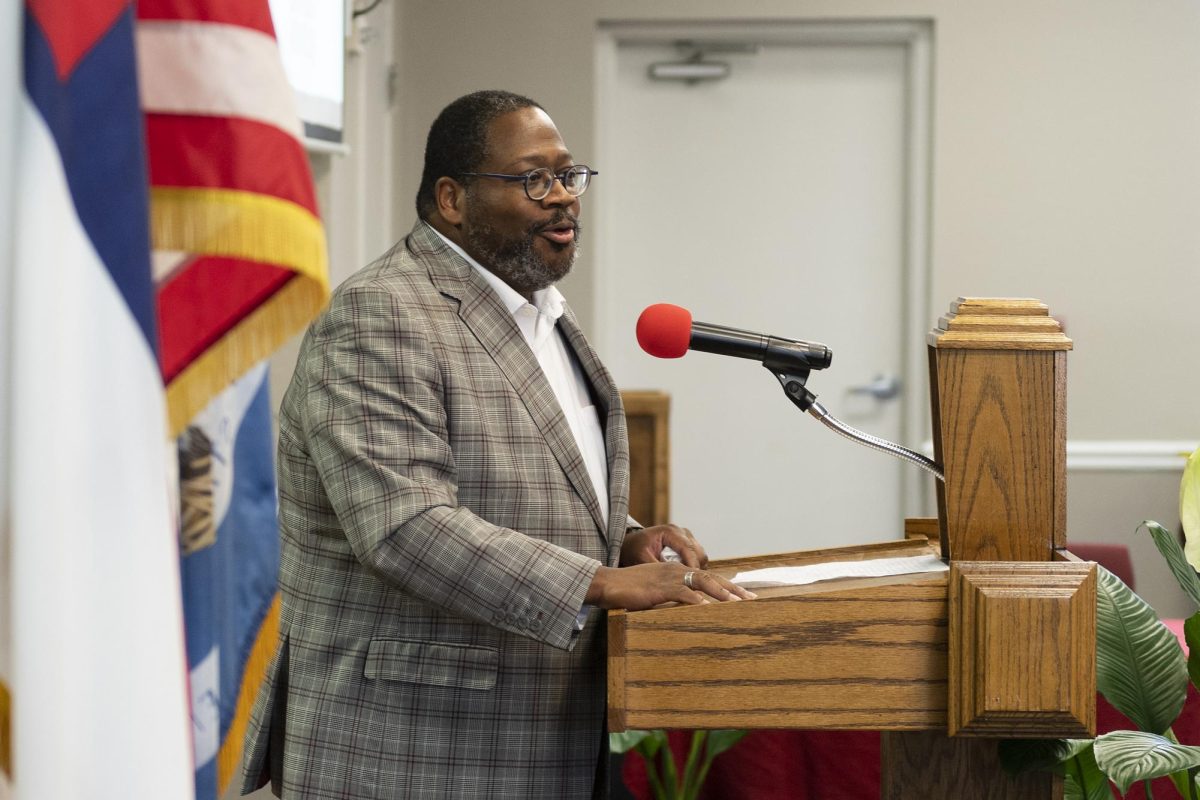
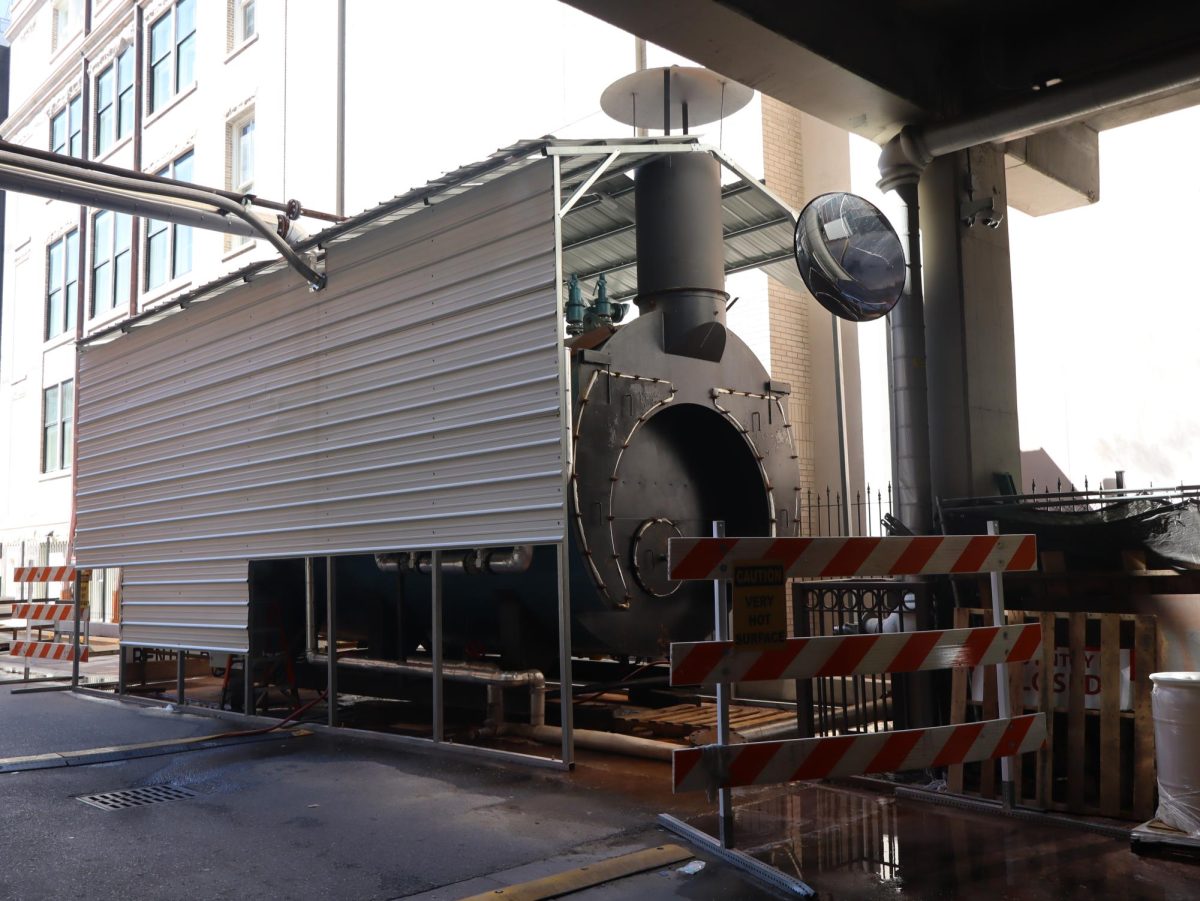
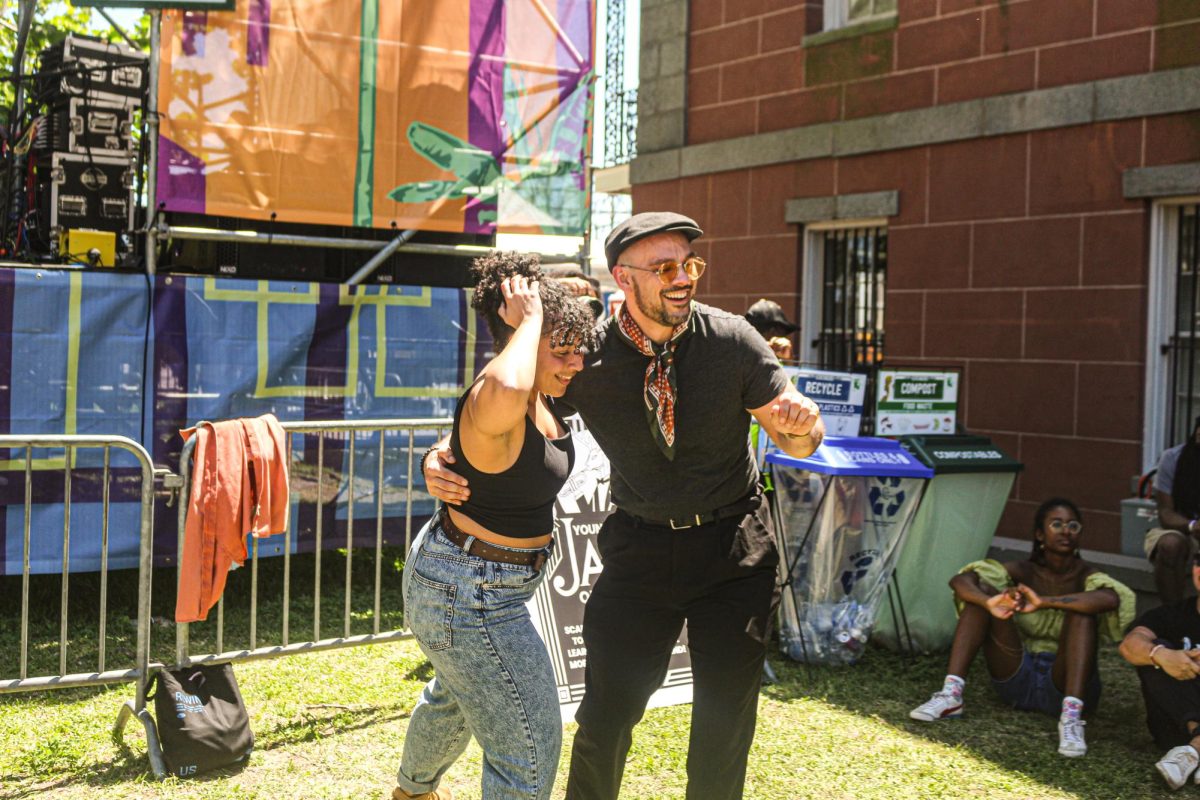

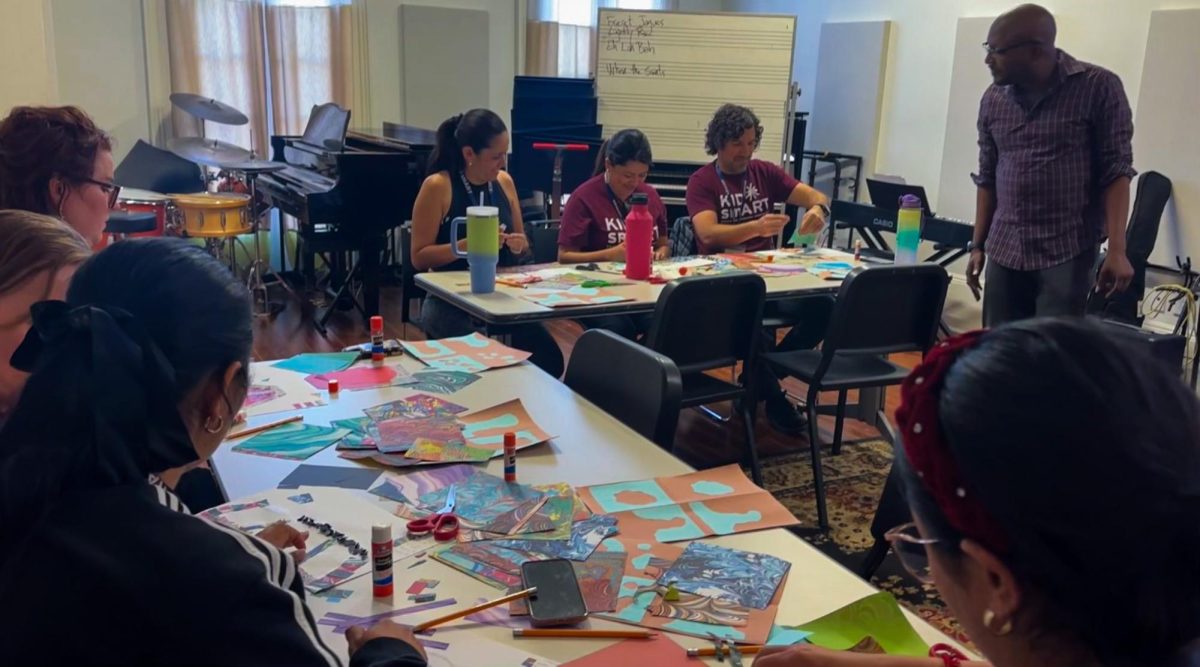
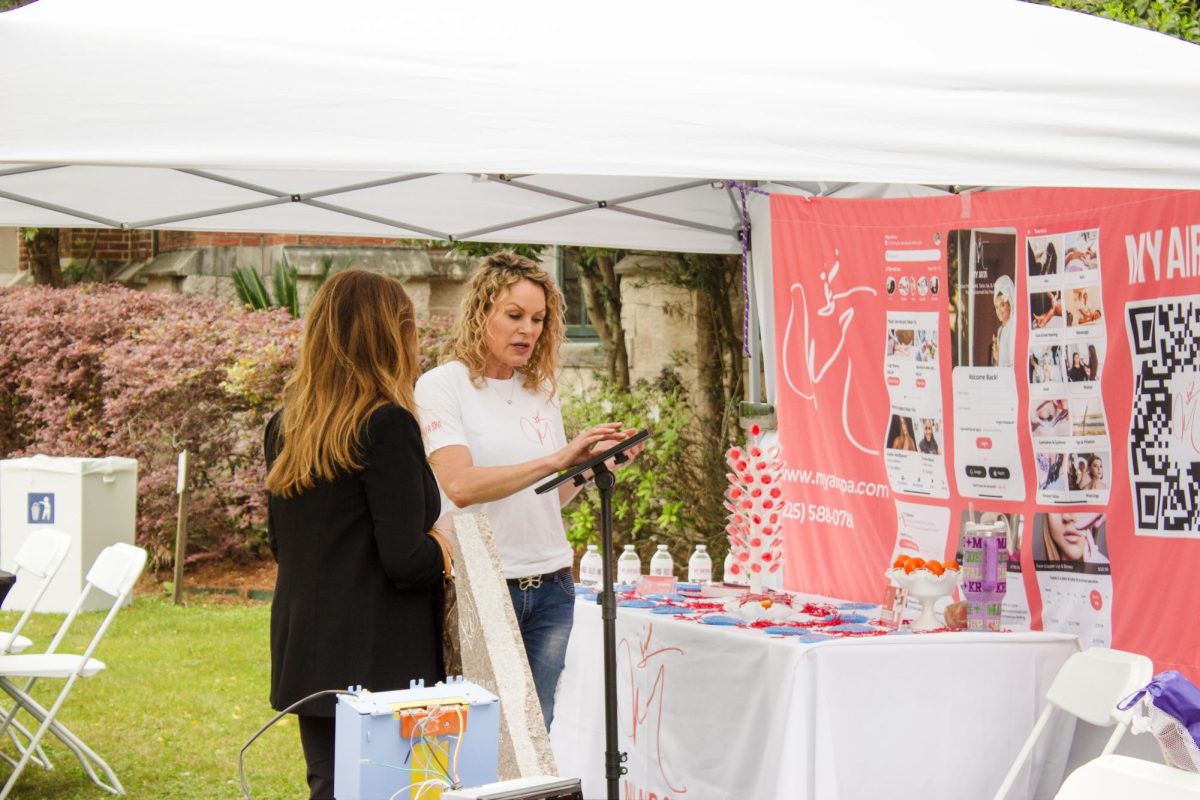

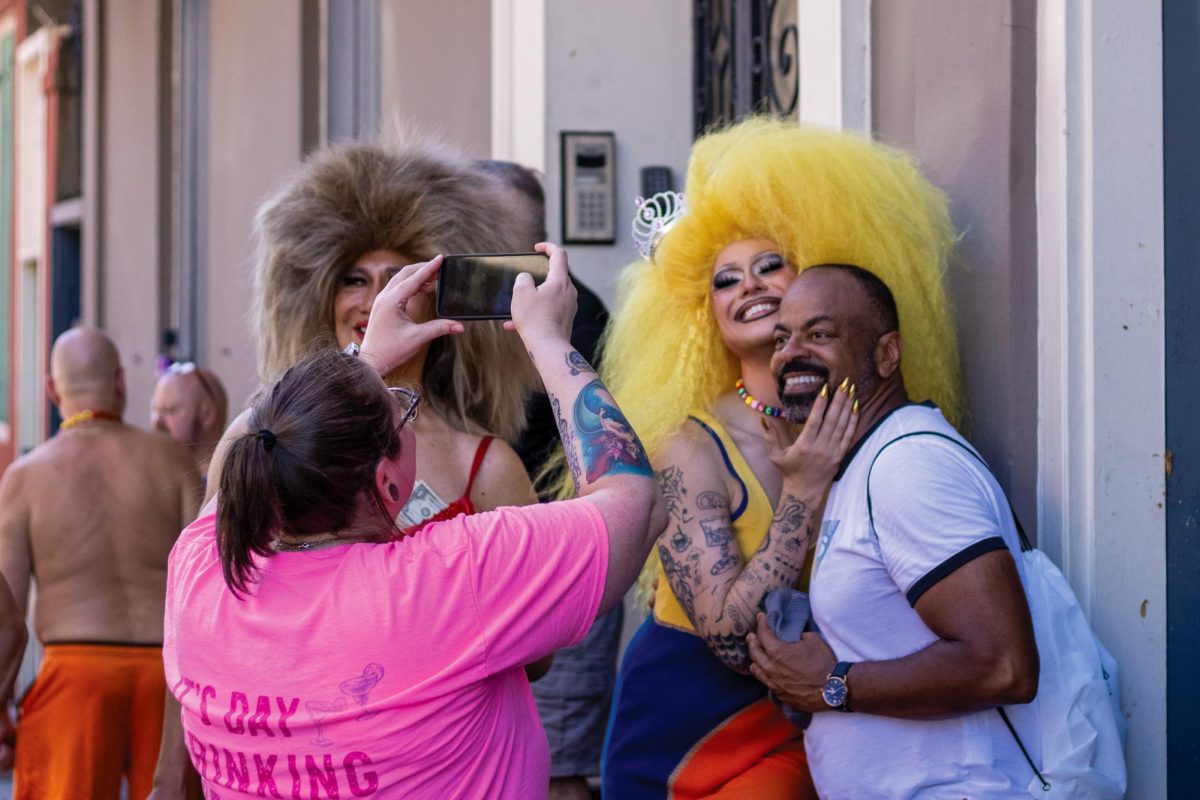


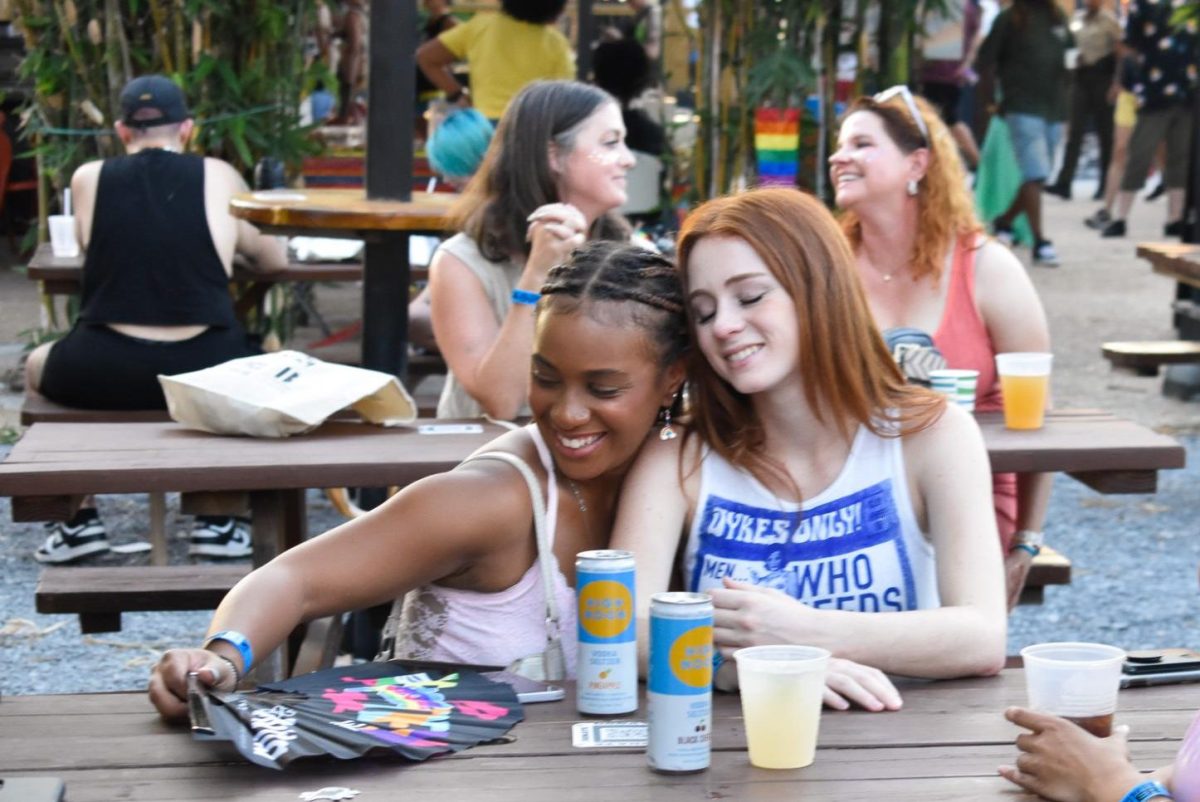
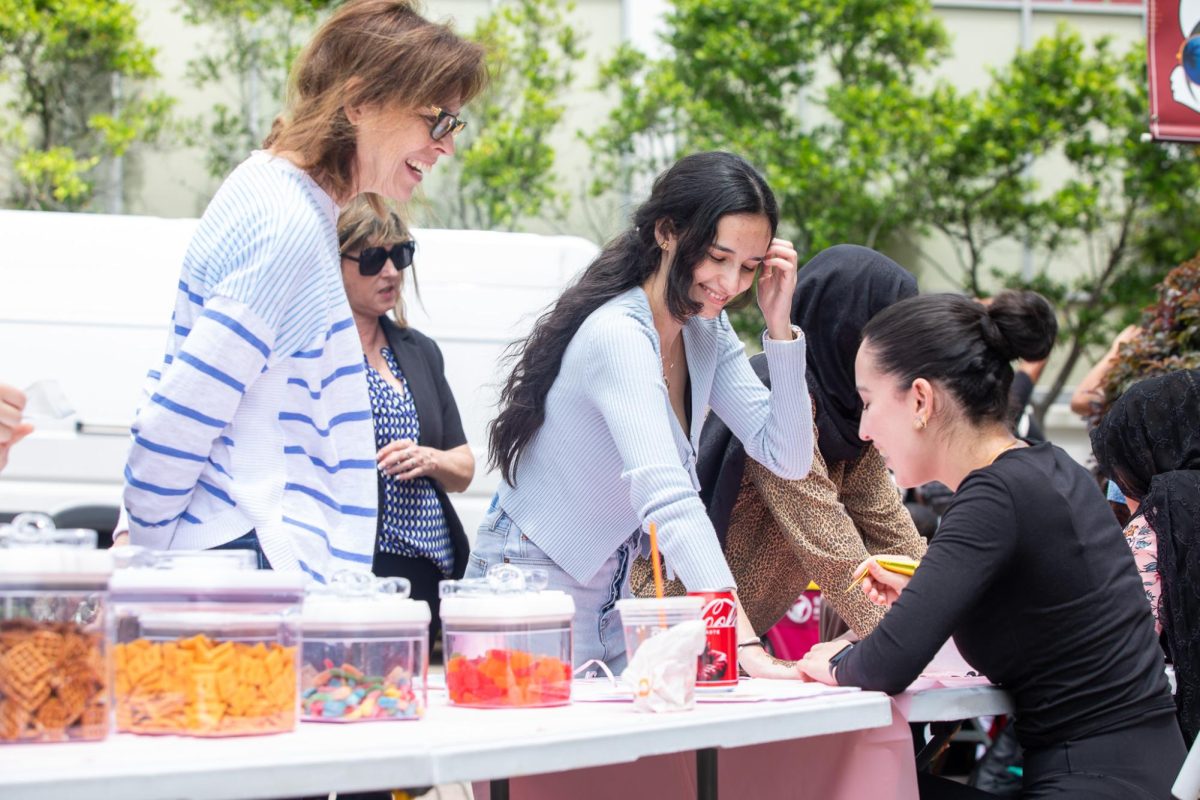


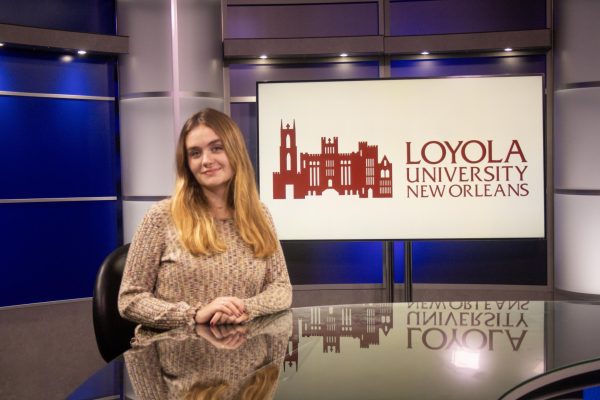

Catherine Wessinger • May 3, 2024 at 2:02 pm
Sounds like tactics used by the FBI Hostage Rescue Team against the Branch Davidians outside Waco, Texas, in 1993. Those stress escalation techniques did not work against the Branch Davidians either. A retired FBI negotiator will inform that such techniques just irritate the barricades subjects. I expect police in New Orleans to do better.